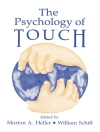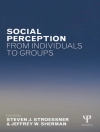Effective counselling is based on a strong working relationship between counsellor and client. Building and maintaining this therapeutic alliance, demands both skill and an ability to negotiate challenges which arise during the counselling process.
Key Issues for Counselling in Action prepares new practitioners for face-to-face work with clients by looking at what is required at each stage of the process and examining issues which practitioners most frequently need to deal with along the way. The topics covered are relevant to all counsellors, regardless of theoretical orientation.
The book explores the everyday issues counsellors face when:
– getting started
– making an assessment
– working at relational depth
– setting goals, and
– ending the relationship
Advice is also given on more difficult challenges, such as dealing with:
– reluctant clients
– stuckness
– client dependency, and
– unplanned endings.
Key Issues for Counselling in Action is a bestselling text which has been used to train many thousands of counsellors as well as supporting their continuing professional development. This second edition has been completely re-written and includes new material on the use of touch, self-care, culture and counselling evaluation.
Windy Dryden is Professor of Psychotherapeutic Studies, Professional and Community Education (PACE) at Goldsmiths College, University of London.
Andrew Reeves is a University Counsellor at the University of Liverpool Counselling Service and Editor of the journal, Counselling & Psychotherapy Research.
İçerik tablosu
The Therapeutic Alliance as an Integrating Framework – Windy Dryden
PART ONE: INITIATING THE THERAPEUTIC ALLIANCE
The Very First Contact with People Enquiring about or Seeking Counselling – Windy Dryden
Structuring the Counselling Process – Barbara Lawton
Initiating Counselling – Phoebe Lambert
Client Assessment – Andrew Reeves
PART TWO: DEEPENING THE THERAPEUTIC ALLIANCE
The Dynamics of Shame in the Therapeutic Relationship – Jules Howdin
Working at Relational Depth – Mick Cooper
Getting Somewhere: Goals and Problems for Counselling – Pierce O′Carroll
Tailoring Your Approach to Different Clients – Windy Dryden
PART THREE: DEALING WITH THREATS TO THE THERAPEUTIC ALLIANCE
Working with Reluctant Clients – Clive Carswell
Working with Transference in Counselling – Jane Macaskie
Working with the Concept of Stuckness – Fátima Fernandes
Working with Client Dependency – Kirsten Amis
PART FOUR: ENDING THE THERAPEUTIC ALLIANCE
Working with a Planned Ending – Maggie Robson
Anticipating and Working with Unplanned Endings – Maggie Robson
PART FIVE: ISSUES FOR THE COUNSELLOR
Using Counsellor Supervision – Gail King
Feelings of Incompetence in Therapy: Causes, Consequences and Coping Strategies – Anne Thériault and Nick Gazzola
Countertransference – Clare Symons
How Close do I get to My Clients? – David Tune
Counselling and Culture – James Barrott
Counsellor Self-Care – Amanda Larcombe
Evaluating Counselling and Evidence Based Practice – Ruth Caleb & Dave Berger
Yazar hakkında
Andrew Reeves is a Professor in the Counselling Professions and Mental Health, a Senior BACP Accredited Counsellor/Psychotherapist and a Registered Social Worker. He is a past-Chair of the British Association for Counselling and Psychotherapy, a Fellow of BACP and a Senior Fellow of Advance HE. He has published extensively on working in counselling and psychotherapy, and particularly in working with risk in a range of organisational settings. He is past Editor-in-Chief of Counselling and Psychotherapy Research journal and has a long-standing commitment to ethics in the counselling professions, including in writing and research.












